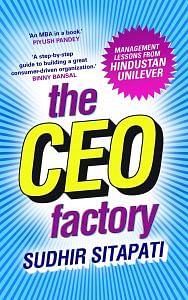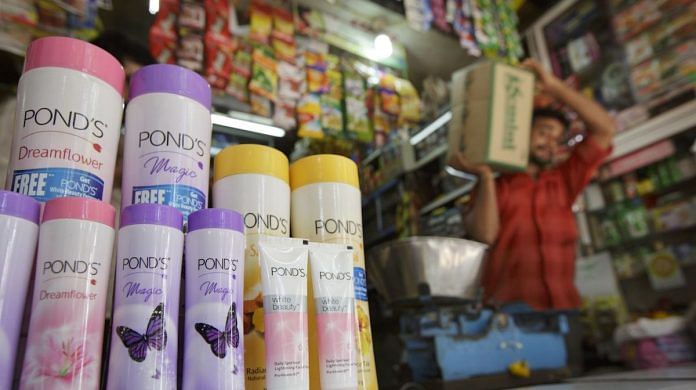In 1975 soaps and vanaspati were under price control, making HUL a loss-making company. HUL [Hindustan Unilever Limited] launched a new brand of premium soap, Supreme which didn’t come under the ambit of price control.
Rustomjee, an elderly sales manager handling MP East, had sent his distributors a note asking them to hold the launch till he visited the market so that they could do it with traditional fanfare. A disgruntled distributor in Raigarh (now in Chhattisgarh) sent this to the police, saying that HUL was encouraging hoarding. Remember this was the time of Emergency. An arrest warrant was issued and [HUL’s] M.K. Sharma, along with Rustomjee, rushed to Raigarh court to get bail.
As they were entering court, they met a lawyer who said that for a small fee he would definitely get Rustomjee bail. On being asked how he was sure, the lawyer said that when MK entered the court the judge would wink at him, proving the influence the lawyer had on the judge. Sure enough, when MK walked into the court, the judge winked at him. Collusion ascertained, MK told the lawyer that the company policy prevents direct or indirect bribes and he was sorry he wouldn’t be able to hire him and proceeded to make alternative arrangements. The judge kept MK and Rustomjee waiting for hours. Sensing that the judge would not hear the case that day, thereby keeping Rustomjee in the cooler for the long Holi weekend, MK asked Rustomjee to leave the court and go to Raipur. At the end of the day the judge adjourned the hearing and asked that Rustomjee be kept in custody till the next working day, that is, three nights in jail.
Also read: Le Sancy, the soap that made Rahul a name to remember way before Shah Rukh Khan
MK told the judge that being old, and being a heart patient, both true, Rustomjee had left for Raipur where he could get medical assistance. The furious judge immediately issued a non-bailable warrant and sent the police to Raipur to bring Rustomjee back. A despondent MK walked out of the court on to the road, only to find Rustomjee waiting for him. There was no way Rustomjee would leave a young manager of the company at the mercy of a corrupt judge. Had the judge locked up MK for obstructing the law, Rustomjee was planning to present himself. MK sent Rustomjee to Pune and himself went to the Jabalpur High Court. Using HUL’s credibility and their counsel’s stature, rather than explain the situation in an open court, a chamber hearing was requested. The high court judge not only granted bail to Rustomjee but after a couple of hearings even quashed the criminal complaint.
While in Jabalpur MK got to know that the company sales officer in Jabalpur had either knowingly or inadvertently tipped the distributor that Rustomjee’s original letter could be misconstrued as hoarding. Peeved at him, MK didn’t go to meet him at his house for dinner as was the custom in those days. Back in Mumbai after several hard days and a successful outcome, MK was surprised to find a formal reprimand letter on his desk. ‘It was unacceptable,’ the letter said, ‘for a covenanted manager not to visit a salesman when in his town.’ The reprimand letter, one of two he received in his career, was on MK’s confidential file till he retired.
Also read: Unilever adds Horlicks in $3.8 billion deal for Glaxo India
This wonderful story reveals many facets of HUL covered in the book. The entrepreneurial drive for profitability in launching Lux Supreme when faced with price controls. The deep belief in salience-led marketing even among field sales managers. The sales system’s commitment to giving it the best in the market by the manager being present for the launch in a small town like Raigarh. Integrity as evinced by the refusal to pay what could easily have been called a small lawyer’s fee in the account book. The courage and presence of mind of a junior company lawyer in taking a risk with the law by asking the sales manager to decamp. The caring showed by a veteran towards a younger manager. The ability of HUL, built by its reputation, to move mountains to get a special hearing of a case. The simple middle-class value of having a meal at a salesperson’s house if you visit his town. The HR systems that picked up a policy violation and sent a reprimand notice immediately.
I can’t think of many companies that would have exhibited many of the behaviours here. A few perhaps would have done some. But there is one in this story that only HUL could have done. Reprimanding a successful outcome, because it involved what in hindsight was an incredibly small transgression – not having dinner at the Jabalpur salesperson’s house. But that is how HUL works. This is what makes it a great company and a CEO Factory, but much, much more importantly a good one.
 This excerpt from The CEO Factory: Management Lessons from Hindustan Lever by Sudhir Sitapati has been published with permission from Juggernaut Books.
This excerpt from The CEO Factory: Management Lessons from Hindustan Lever by Sudhir Sitapati has been published with permission from Juggernaut Books.




Please help me